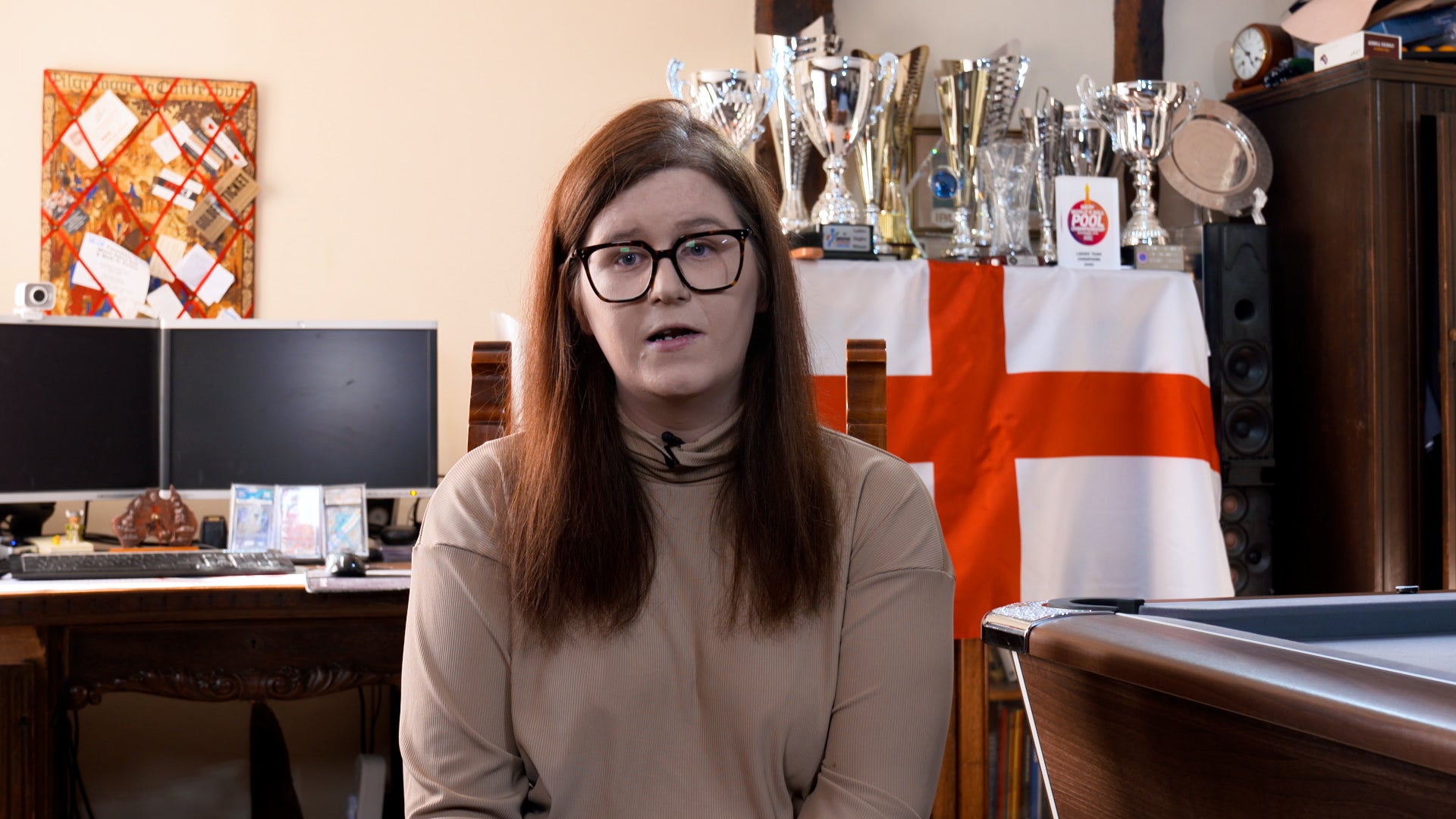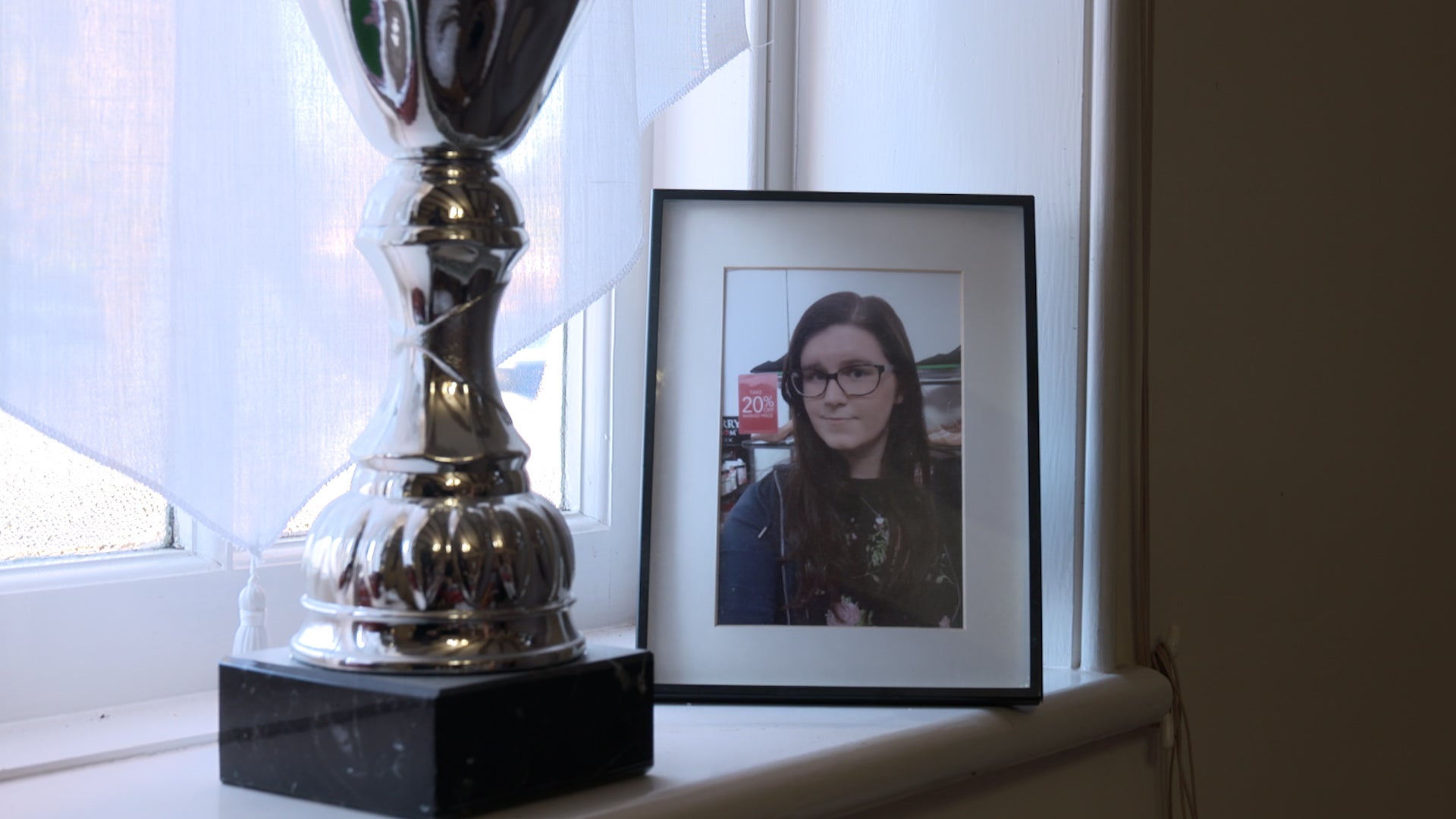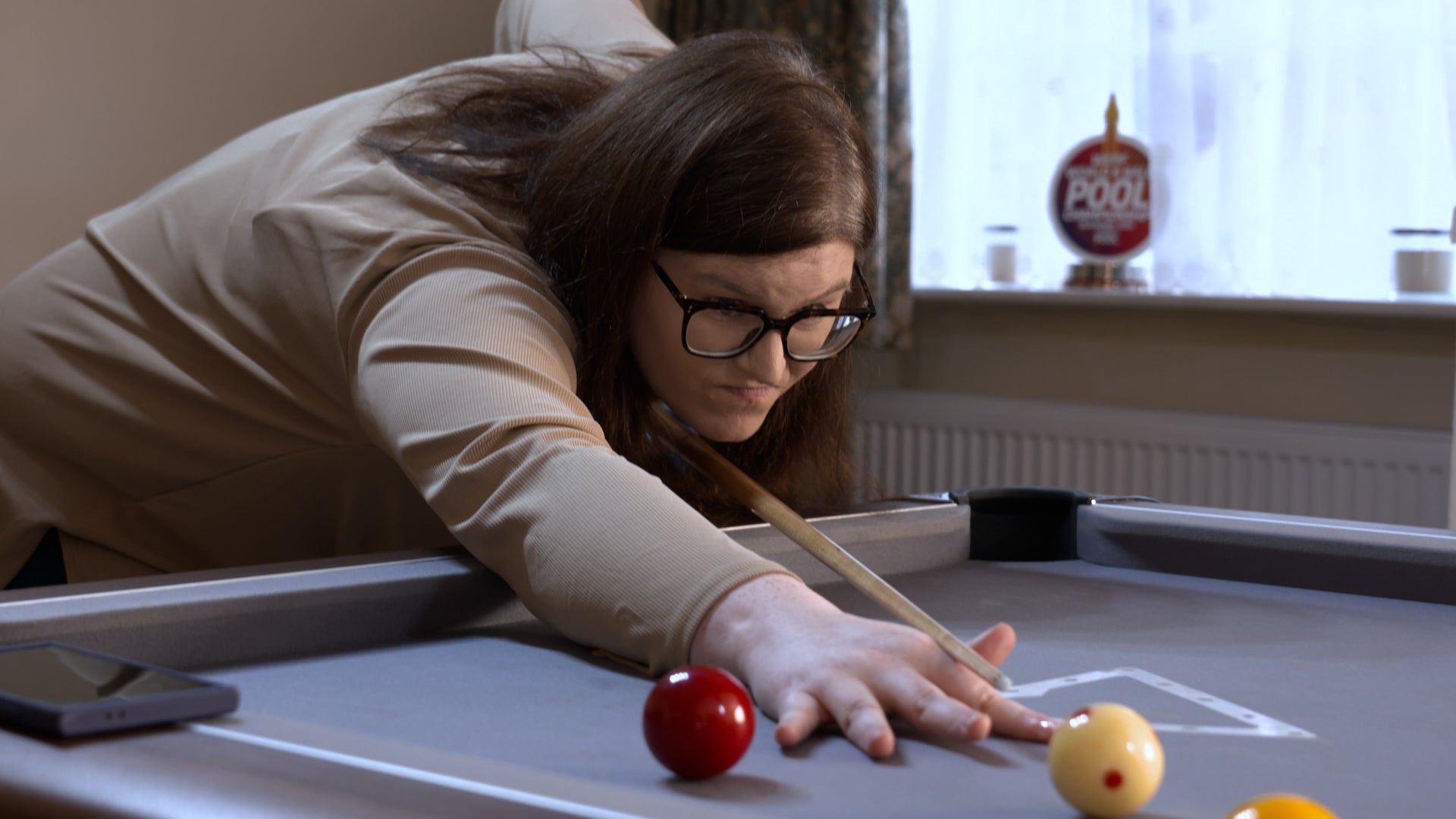‘This is pool not boxing’: Why champion Harriet Haynes is confident she’ll succeed in trans ban challenge
Pool player set to challenge English Blackball Federation in landmark court case
Your support helps us to tell the story
From reproductive rights to climate change to Big Tech, The Independent is on the ground when the story is developing. Whether it's investigating the financials of Elon Musk's pro-Trump PAC or producing our latest documentary, 'The A Word', which shines a light on the American women fighting for reproductive rights, we know how important it is to parse out the facts from the messaging.
At such a critical moment in US history, we need reporters on the ground. Your donation allows us to keep sending journalists to speak to both sides of the story.
The Independent is trusted by Americans across the entire political spectrum. And unlike many other quality news outlets, we choose not to lock Americans out of our reporting and analysis with paywalls. We believe quality journalism should be available to everyone, paid for by those who can afford it.
Your support makes all the difference.On the 27th August last year, the English Blackball Pool Federation (EBPF) announced that they were banning trans women from playing in their Ladies’ events, saying they wanted players to “enjoy a safer environment” and ensure “equality and fairness for all”.
For transgender pool champion Harriet Haynes the news came as a complete shock.
“It came completely out of the blue. I had actually been playing in one of their tournaments on the Saturday and nothing was said about it then. To say that [the decision] was made so that they could play in a safer environment kind of meant that trans women were a threat to other women,” she explained.
The 34-year-old felt the statement was worlds away from the inclusive sport she’d grown to love over the past decade of playing pool, and hoped the English Blackball Pool Federation (EBPF) would reverse their decision.
Yet the Federation, which runs county level competitions in England, have maintained their ban, with Harriet now having to resort to a legal fight to assert her rights. The landmark case, which will thrust the issue of trans women’s participation in sport back into the limelight, is set to be heard next April.
In her first interview about the court case, Harriet explained that taking legal action against the EBPF wasn’t something she wanted to do: “I’ve never really considered myself a trailblazer. I’m just a woman who is trying to live my life, and all I want to do is just be treated the same as any other woman.
“I work in an office environment and I’m treated like a woman every single day in the rest of my life. This is the only aspect of my life where I’m not.”

Harriet had played since 2019 with a Kent womens’ team in the EBPF leagues but she is now excluded from playing with them. “I miss playing with them, and they miss me. That’s why I would like to get back to playing Blackball pool”, she said in an interview at her Kent home.
Harriet was first introduced to pool as a young child by her mother, who played each Thursday in division two of the Basingstoke league.
In 2014 she started her gender transition and moved into a 9-5 admin job, which gave her more freedom in the evenings to play pool. Since then she has dedicated hours to honing her craft and, just a few days before the lockdown in 2020, Harriet got a seven-foot pool table delivered to her house.
While other players were shut away from practice halls, Harriet spent her evenings practising and emerged from the pandemic a significantly better player - leading 2022 to be her most successful year in the sport to date.
The mileage meter on her partner’s car has clocked up nearly 60,000 miles in the past four years as the pair travel around the country and abroad to pool tournaments.
After our interview, on a cold Wednesday morning, they are making a five-and-a-half hour drive to Blackpool so that Harriet can practise on pool tables there ahead of a competition at the weekend.
Explaining her obsession with the game, she said: “It’s a puzzle that you can never really solve. Every frame is different. Every break is different. There’s going to be clusters of balls that you have to solve and sort out. I just love trying to sort out that puzzle.
“Most adults have probably played a game of pool. It’s a very inclusive sport with a real mixed bag of people.”

Including Harriet, there have been five trans women who played in the EBPF’s competitions before the ban. Their participation has already been the focus of complaints, and some other players have forfeited their matches rather than play against Harriet.
Two other main pool organisations - the Ultimate Pool Group (UPG) and the World Eightball Pool Federation (WEPF) - also announced that they would ban trans women from competing in Ladies’ tournaments in August last year. But reversed this decision in October 2023, saying they would adhere to the guidelines of the International Olympic Committee and the World Professional Snooker and Billiards Association.
Under these rules, transgender women must submit confirmation from a medical professional that they have reduced the testosterone levels in their blood - to below 10 nmol/L - for at least 21 months prior to the player’s first competition and that it has been maintained at this level.
The UPG and the WEPF have now been threatened with legal action from female players who say they are subject to direct sex discrimination by being made to play against trans women.

Ultimately Harriet’s case will come down to whether or not trans women have an advantage over cis women when it comes to playing pool. “Cis” is short for cisgender, meaning someone whose gender identity matches the sex they were assigned at birth.
Harriet is feeling confident that the evidence will show that she doesn’t have the upper hand because she is trans.
“The evidence that we’ve received from our expert witnesses shows that I have no advantage. They’ve shown that pool isn’t a gender affected sport. Having that on paper is just brilliant. I believed it before but now we have it in fact. My outlook has changed and it’s spurred me on to practice even harder,” she said.
She stressed: “We’re not talking about boxing or golf - we’re talking about pool.”
Opponents have argued that cis men and trans women would have a natural advantage over cis women in pool because they are able to hit their break shot with greater speed.
In their case, the English Blackball Pool Federation also argue that trans women benefit from a greater hand span, stronger fingers and longer limbs.
They argue that in pool, while strength and speed are not critically important factors, they do make a discernible difference.
However in an expert report submitted as part of Harriet’s case, physics professor Joseph A Formaggio from the Massachusetts Institute of Technology (MIT) explains that as long as the player can break above a certain speed, which is achievable to both sexes, there is no inherent advantage gained by a higher cue velocity.
He explains that pool combines both the aspects of chess, where the player needs to think 4-5 shots ahead, and archery, where the placement of the balls is critical to being able to achieve success.
As a result a harder break shot is not necessarily a winning strategy. He writes: “Although there are some advantages that come with the ability to strike a white ball with a greater force, these advantages appear to dissipate (and perhaps even slightly lower) once one reaches a certain threshold. Pool players, regardless of physical strength, appear to be above this threshold and can, therefore, compete effectively through strategy without hindrance that may arise from physical differences.”

The case will be heard by a county court judge in April next year, but could then head to the High Court on appeal.
Speaking about what it would be like to win the upcoming case, Harriet said: “It would be a weight lifted off my shoulders. I’ve been playing pool for the past year with this on my shoulders. It’s a big burden to have. I’ve just been living my life as best I can, trying to get through every day, and so it will just be a massive relief if we win the case.”
Asked what she would say to someone who disagrees with the inclusion of trans women in womens’ sport, she replied: “I would invite them to speak to me or to speak to someone who has gone through it. Hopefully they will realise that actually we are just normal people. And we’re talking about pool. We’re not talking about any other sport. This is not a gender affected sport.”
The EBPF declined to comment. The UPG and the WEPF were contacted for comment.
